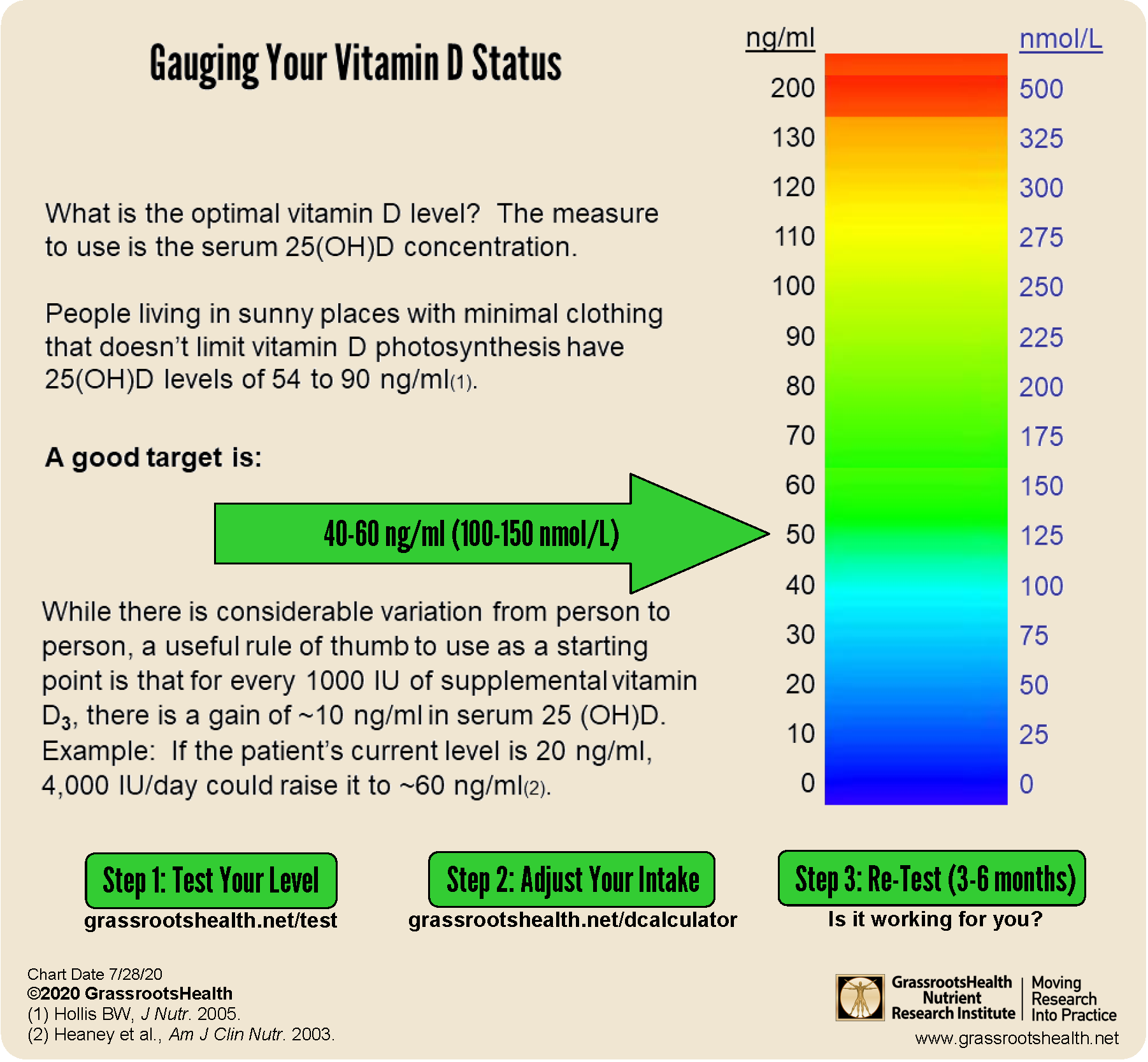Published on July 29, 2020
 Do you ever wonder how to have “the vitamin D” conversation with others in a simple, concise way that is easy to remember and understand? Perhaps you have shared about the importance of vitamin D for certain aspects of health, along with your own story of how it may have helped you. What action steps do you want them to take to help improve their health with vitamin D?
Do you ever wonder how to have “the vitamin D” conversation with others in a simple, concise way that is easy to remember and understand? Perhaps you have shared about the importance of vitamin D for certain aspects of health, along with your own story of how it may have helped you. What action steps do you want them to take to help improve their health with vitamin D?
We believe this may help!
Download, Print & Share
The graphic above is a great way to address the question “What should I do for my vitamin D level?” After learning about the possible benefits vitamin D may offer for their health, it can be used to give someone new to vitamin D easy-to-follow next steps to take, including
- Identifying a target a level of 40-60 ng/ml (100-150 nmol/L)
- Test to see what their current level is
- Use the D*calculator to determine how much additional intake may be needed to reach their goal
- Re-test after 3-6 months to see if their new intake has helped them achieve that goal
An easy way to get started!
Additional Factors to Consider
As always, it is important to remember that everyone is unique in how they respond to supplementation. Multiple factors play a role in how someone’s vitamin D level changes in response to increased vitamin D intake, such as whether they are getting enough important co-factors (such as magnesium or vitamin K2), when and how they get their vitamin D (sun, supplements, food, etc.), and current medical conditions, among other things. Read more on the different reasons one’s vitamin D level may not be responding as expected to supplementation, and how to improve that response.
What’s the Status of Your Vitamin D & Other Nutrient Levels?
The only way to know what your levels are is to test. Have you tested lately? Check your levels today!
Are You Getting Enough Vitamin D?
Do you know what your vitamin D level is? Be sure to test today to find out, and take steps to keep it within a target of 40-60 ng/ml or 100-150 nmol/L! Give your immune system the nutrients it needs to support a healthy you and protect yourself from unnecessary diseases.
Through GrassrootsHealth Nutrient Research Institute, you can also test your essential elements magnesium, copper, zinc and selenium, toxins such as lead, mercury and cadmium, as well as your omega-3 levels, inflammation levels and thyroid stimulating hormone (TSH) level. Find out your levels today! Log on to the test selection page (click the link below) to get your tests and see for yourself if your levels can be improved.
Make sure you track your results before and after, about every 6 months!
How can I track my nutrient intake and levels over time?
To help you track your supplement use and nutrient levels, GrassrootsHealth has created the Personal Health Nutrient Decision System called
For each specific supplement, you can track what days you take it, how much, and many other details. This will help you know your true supplemental intake and what patterns of use work for you to reach and maintain optimum nutrient levels. Check it out today!







